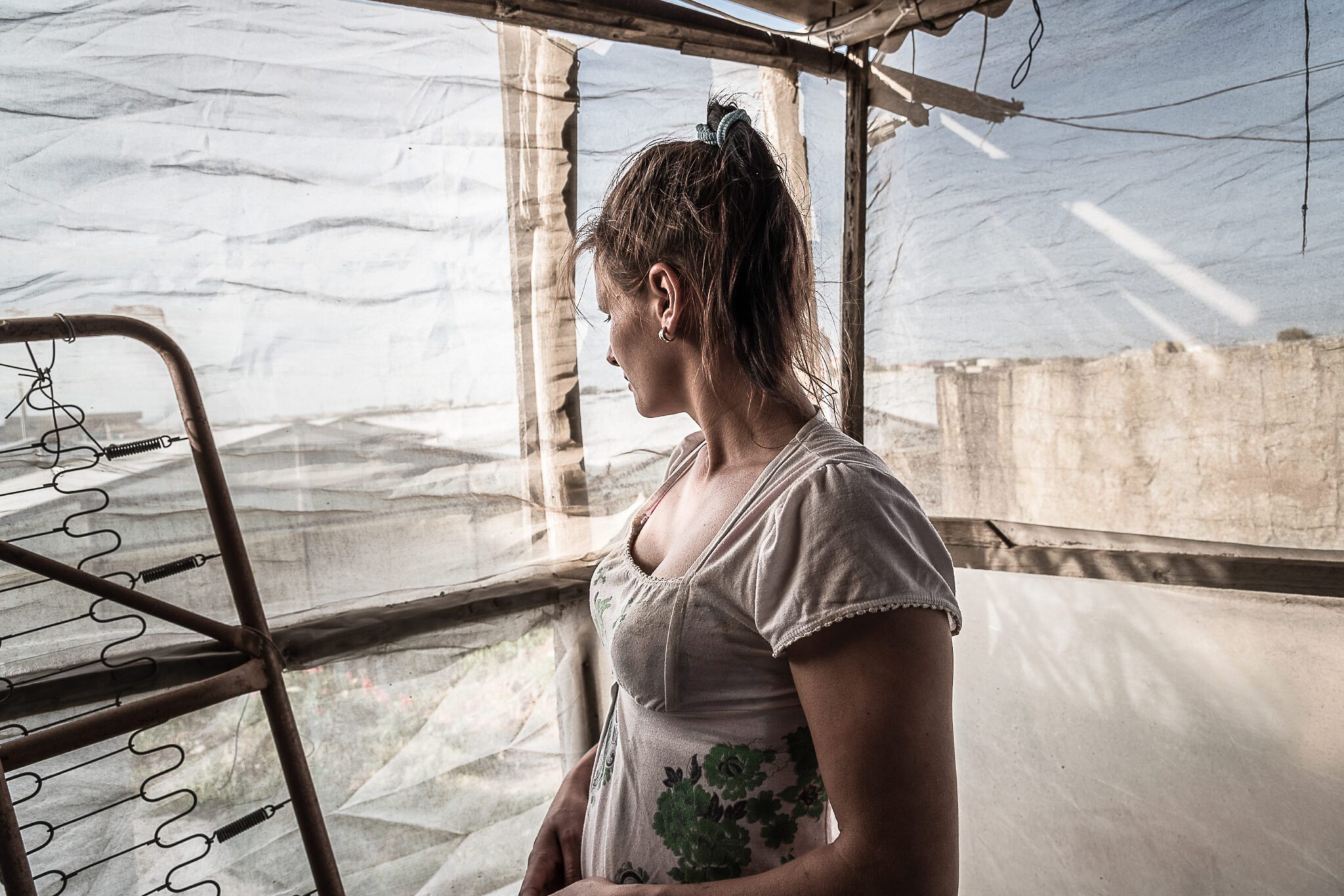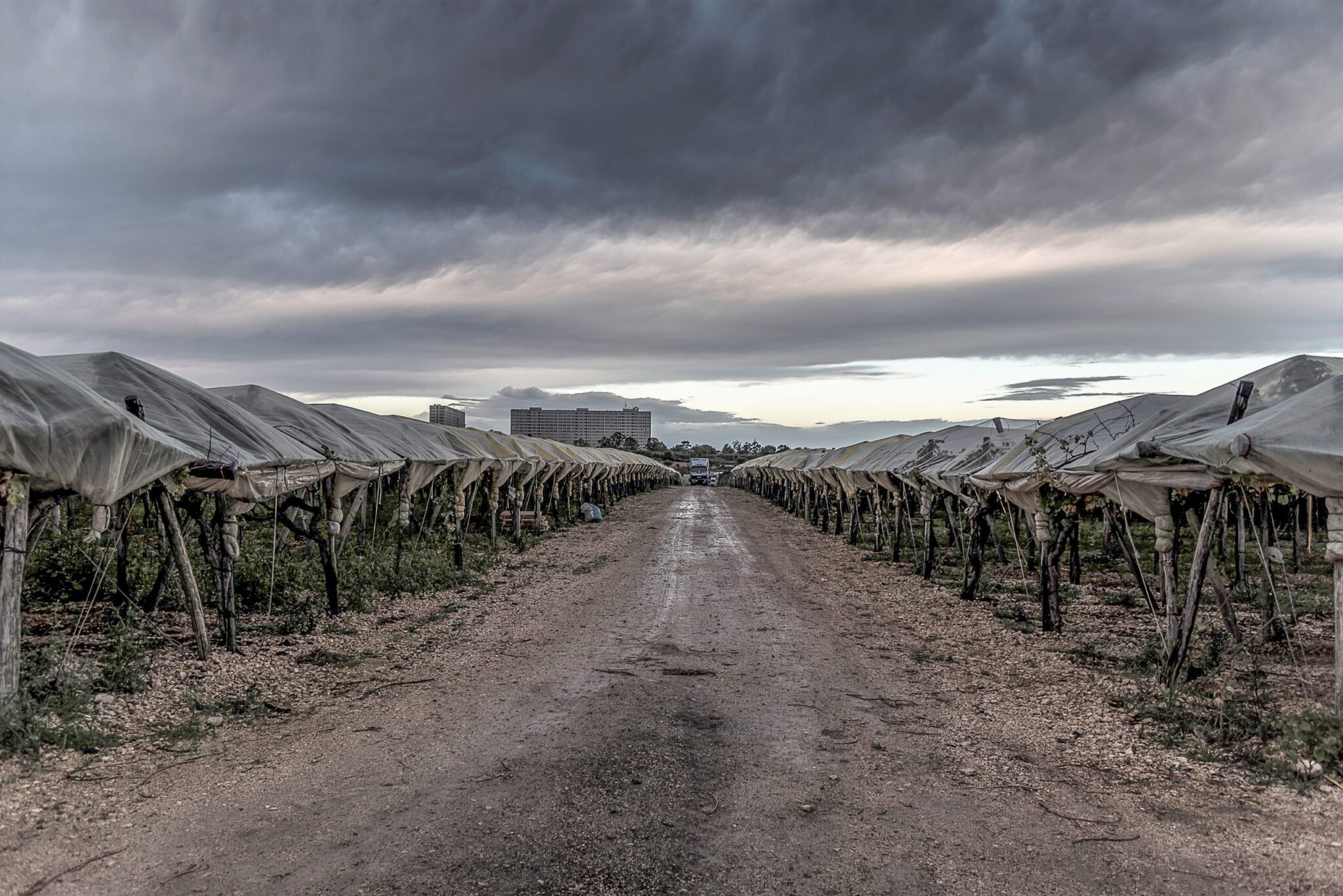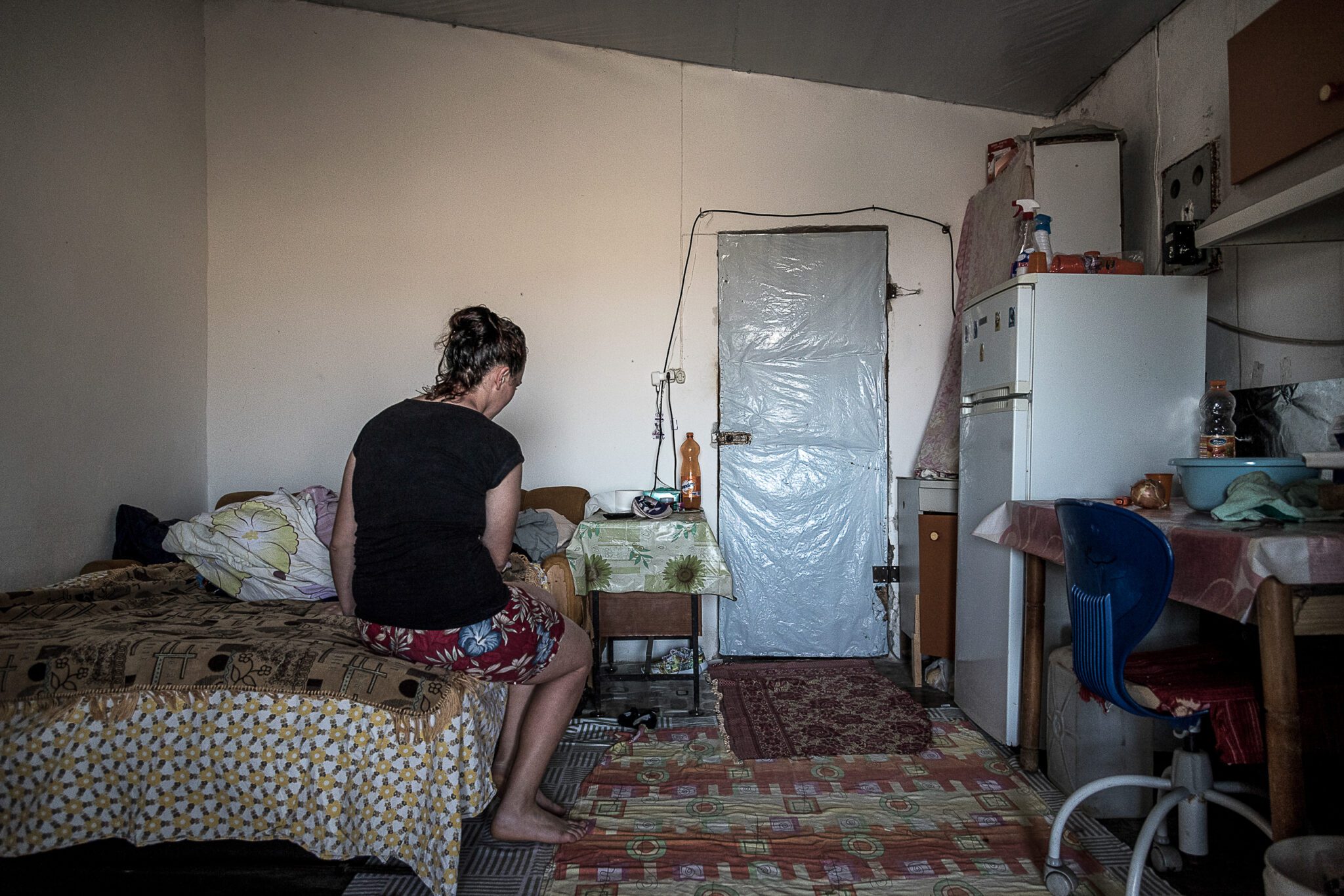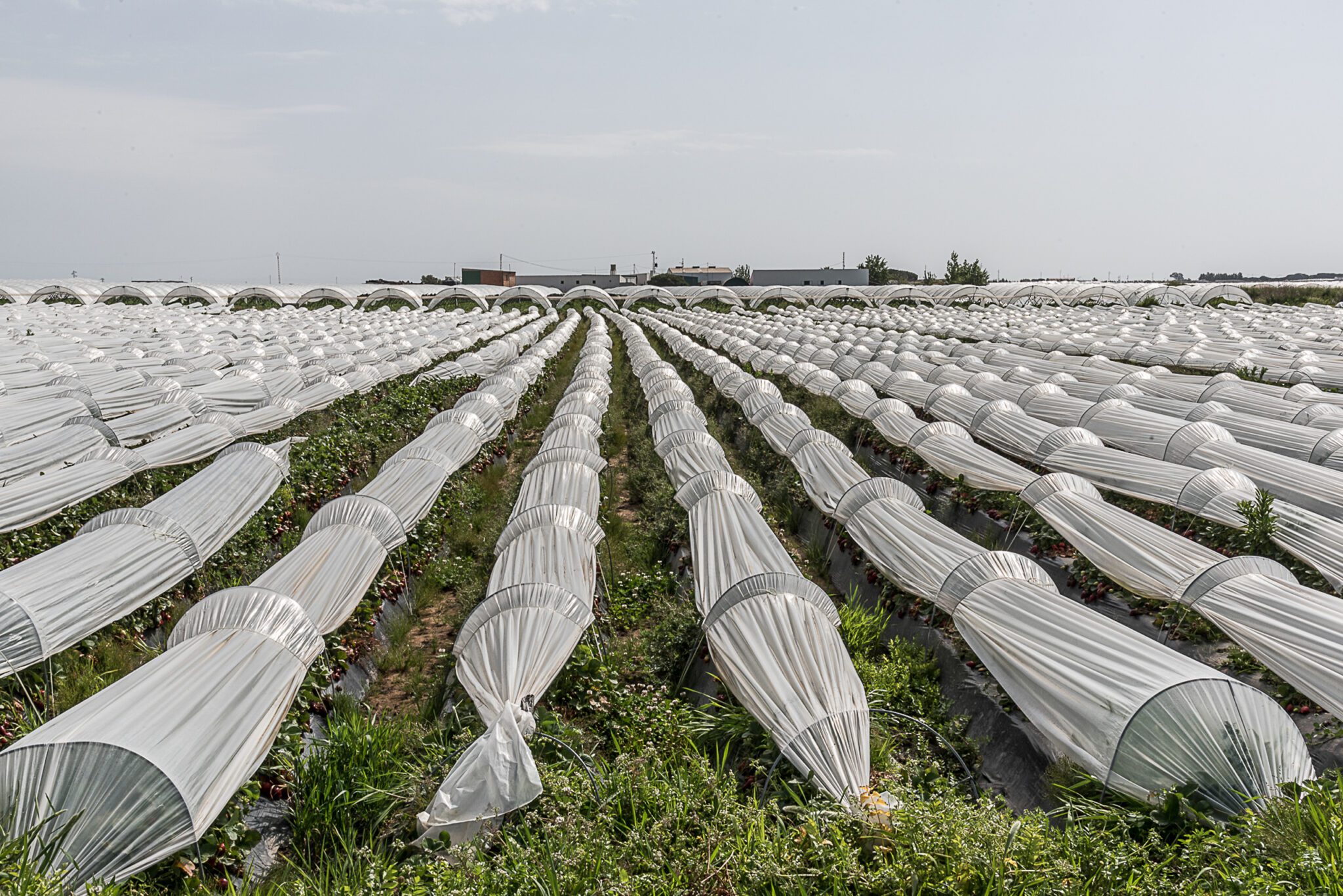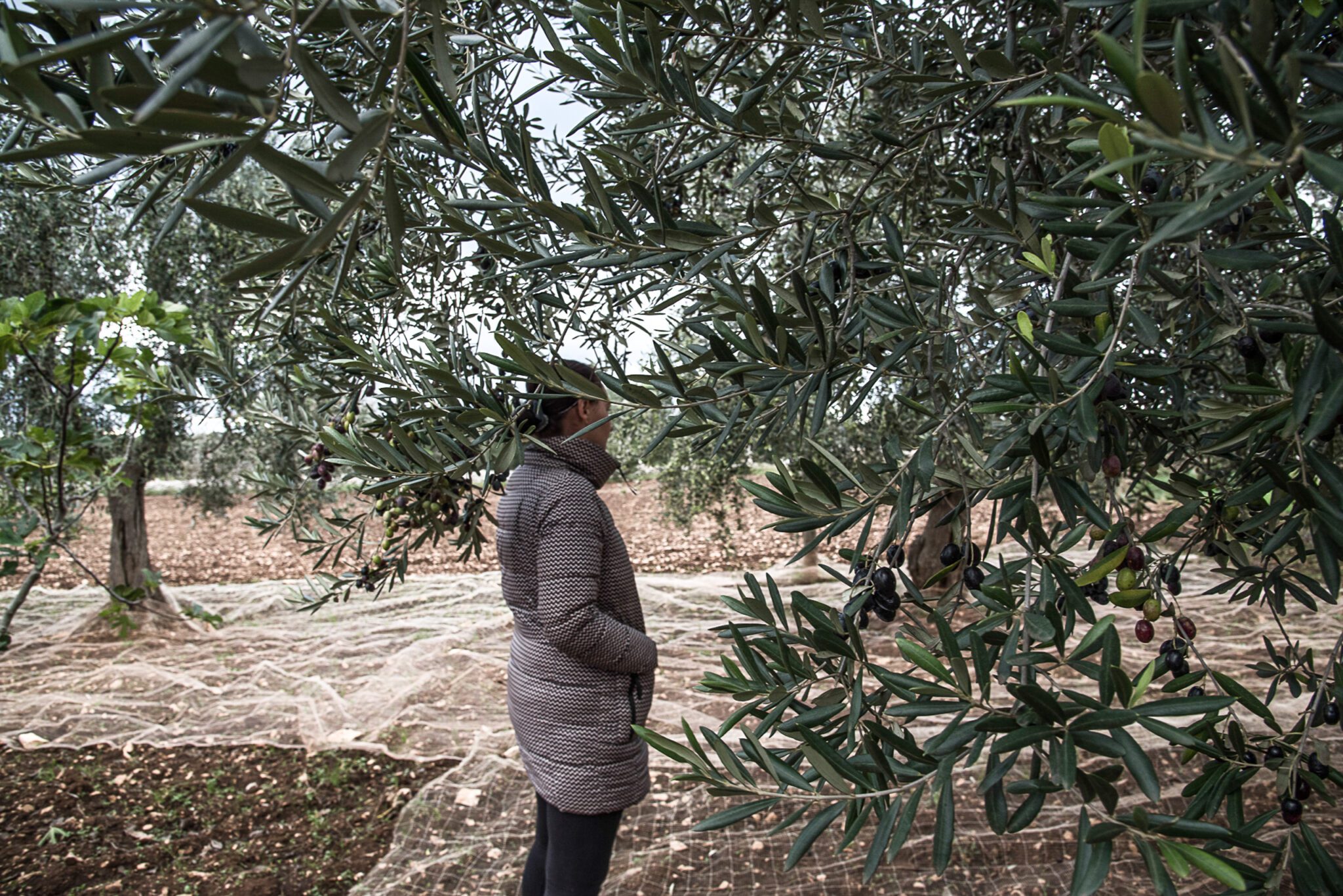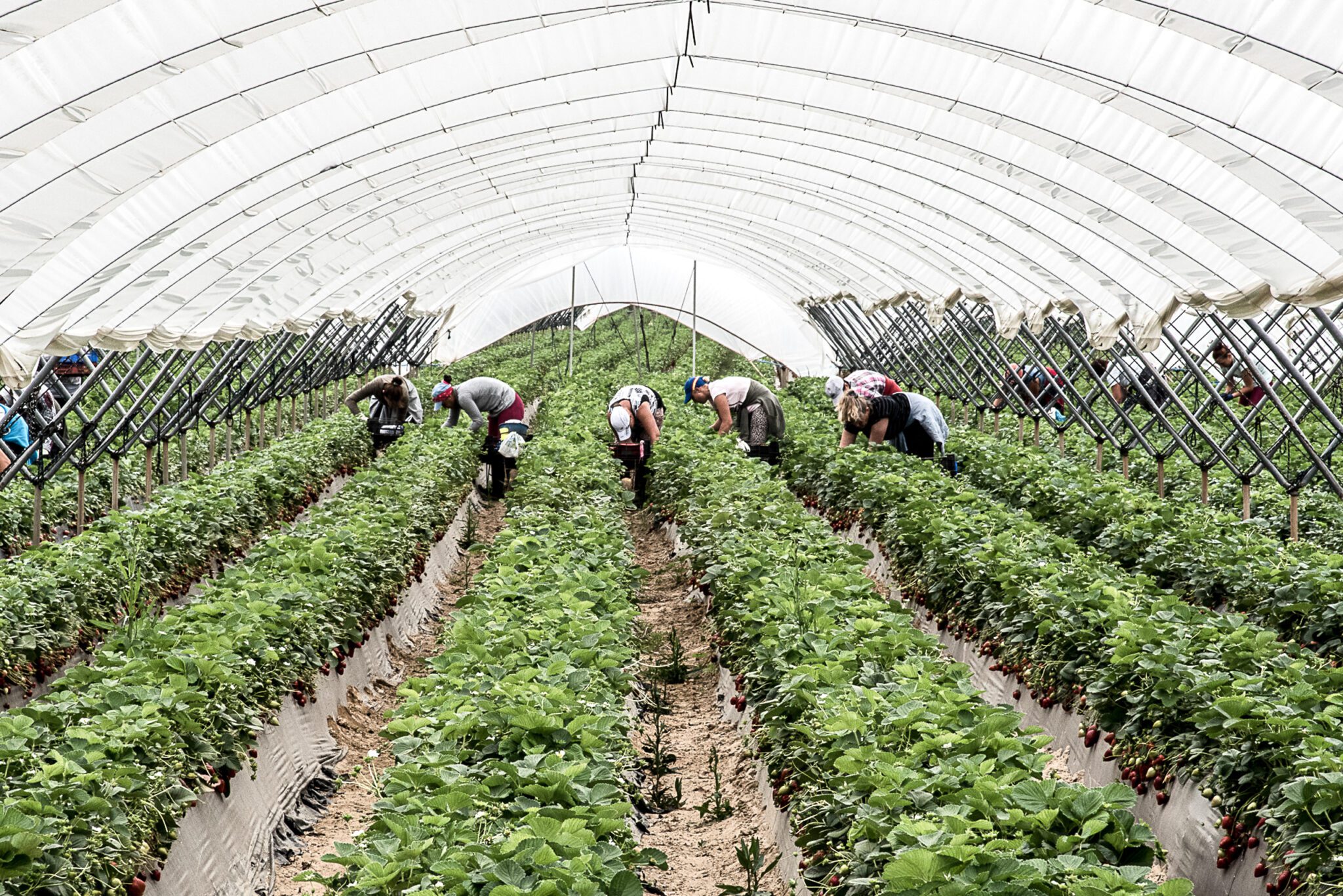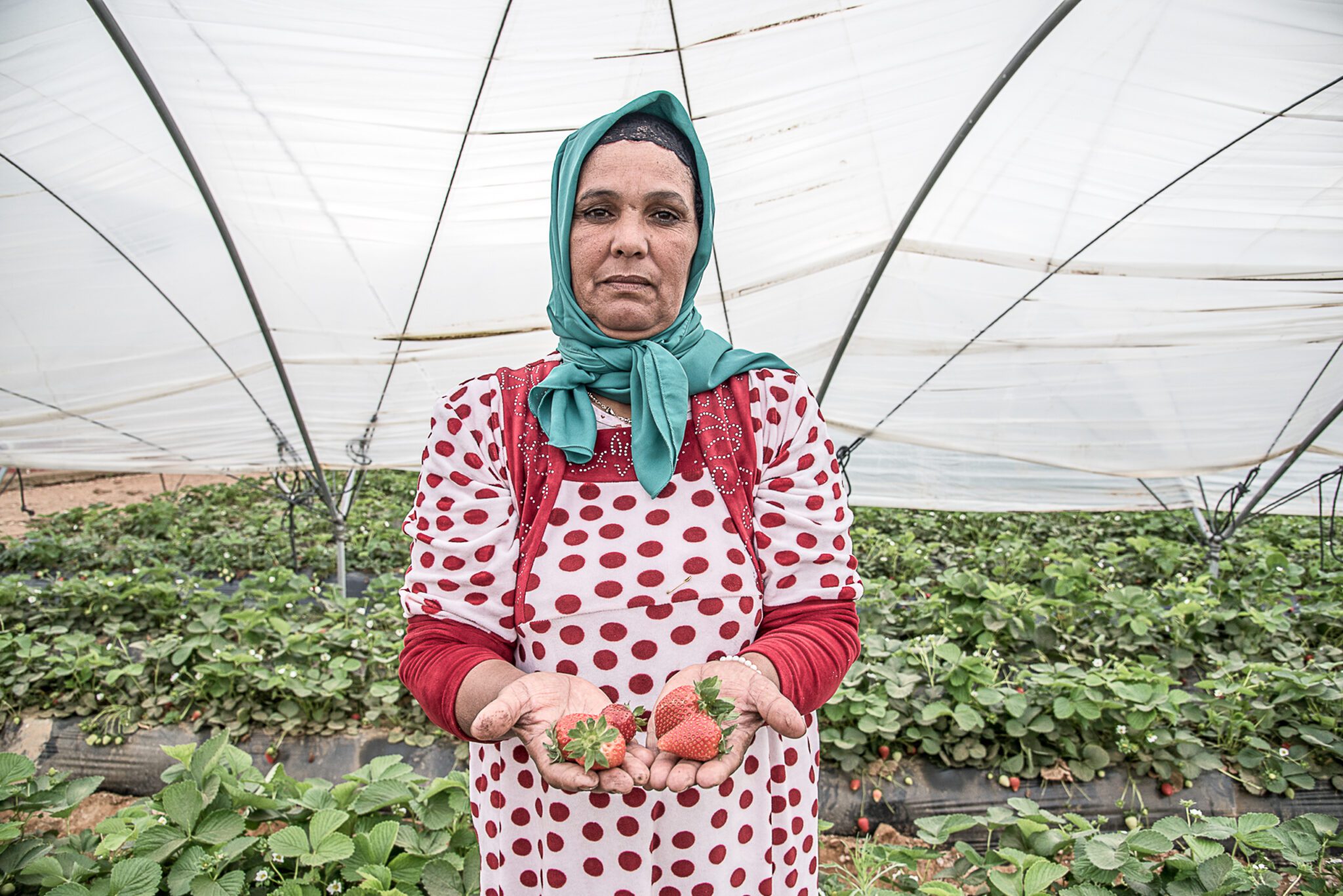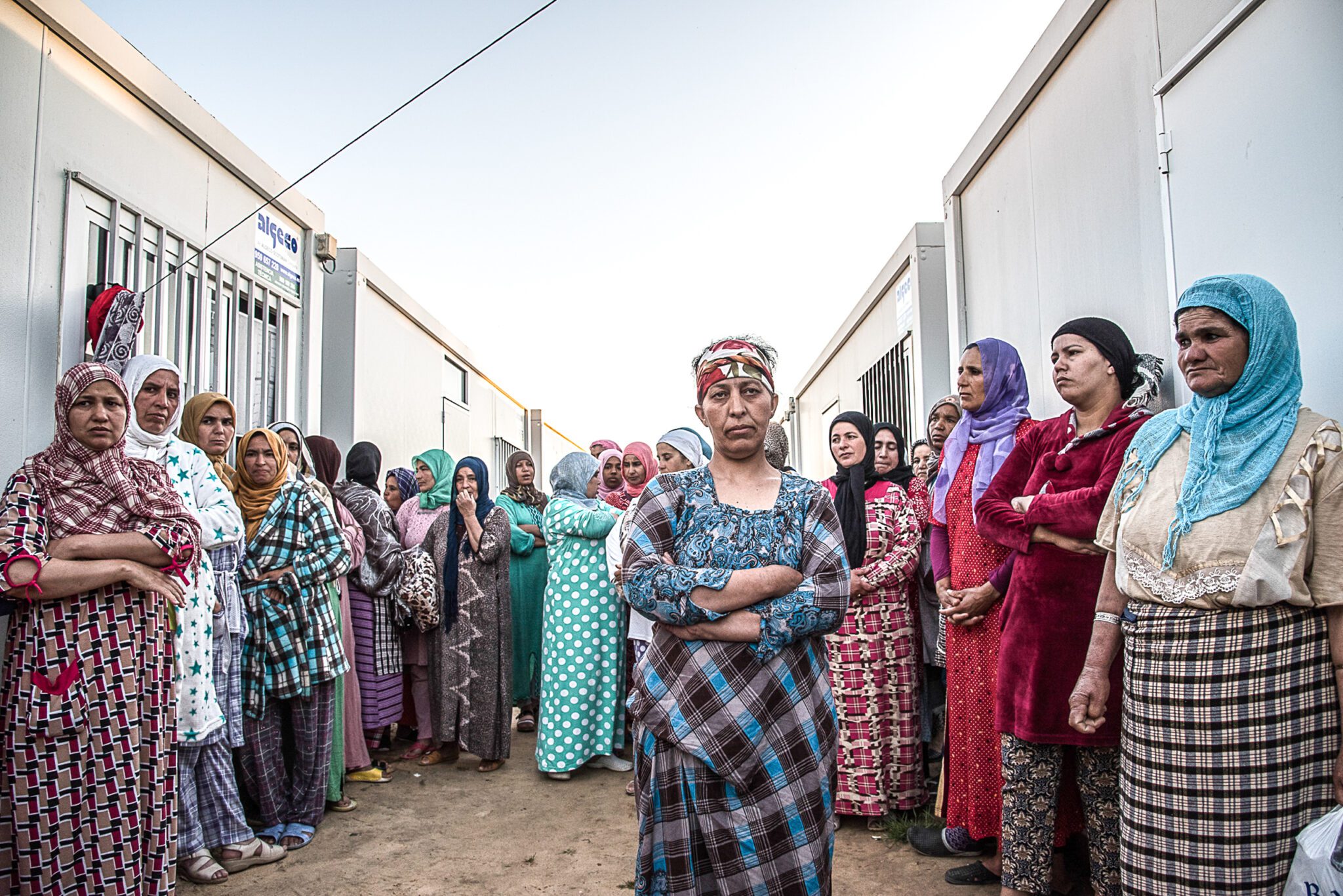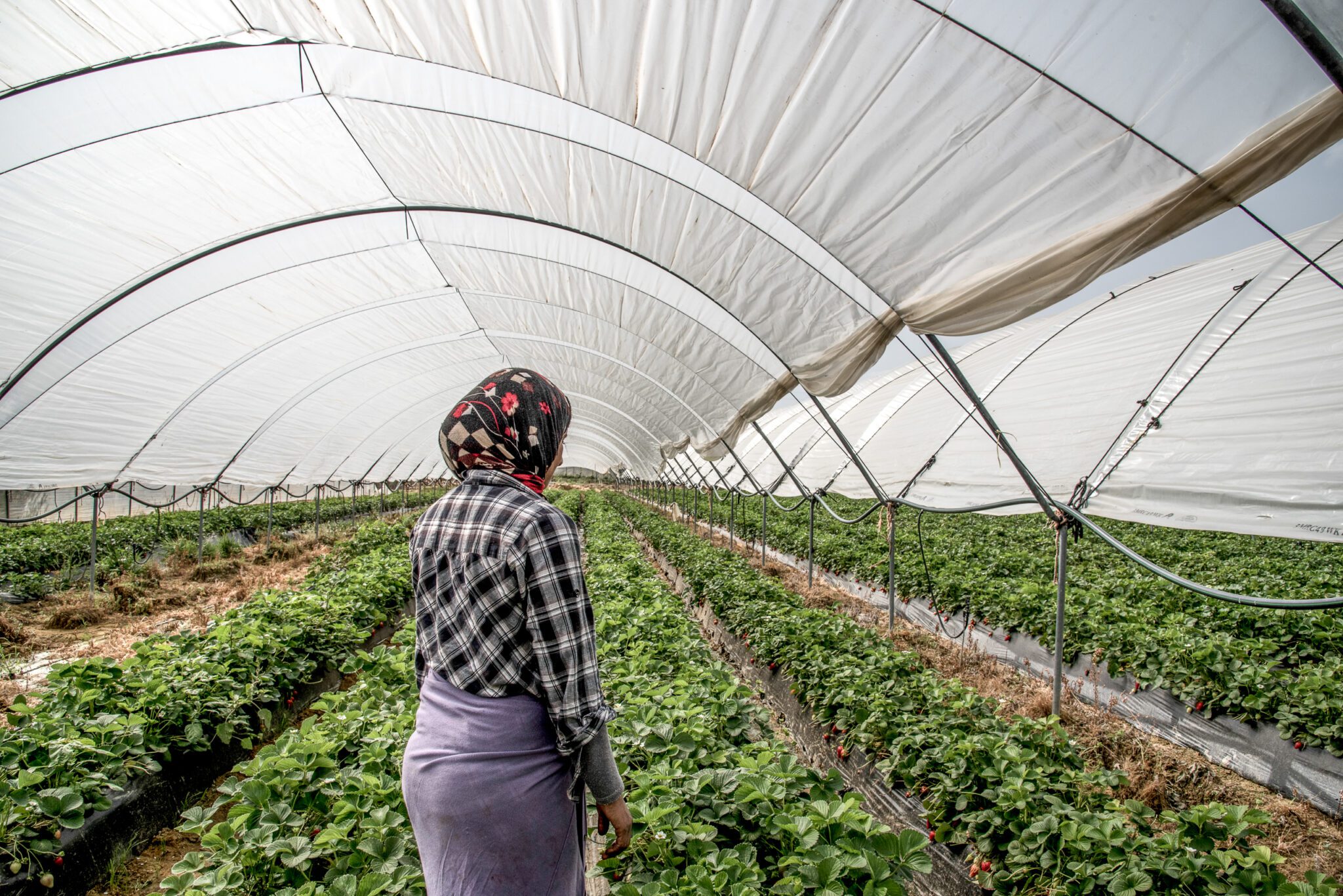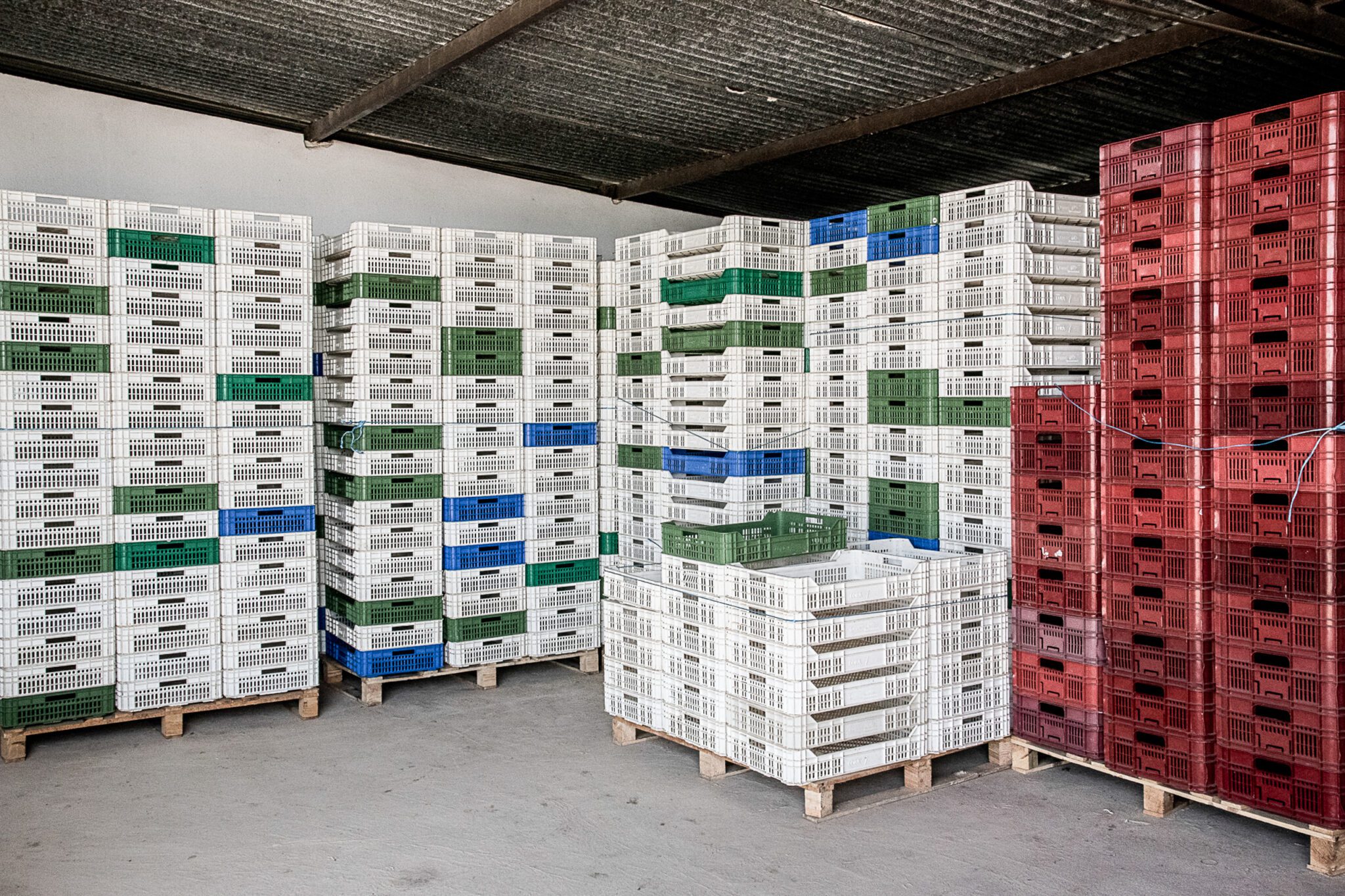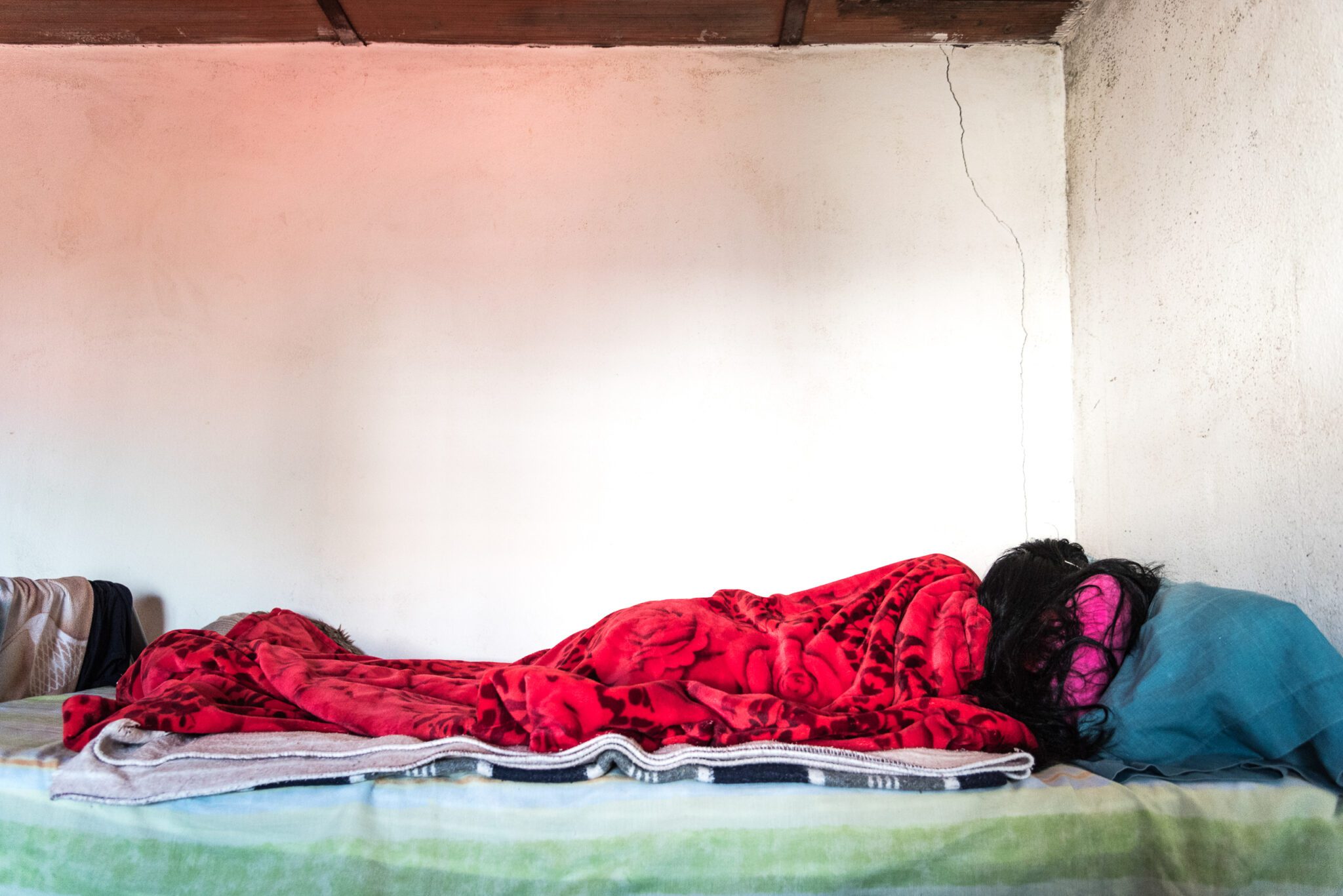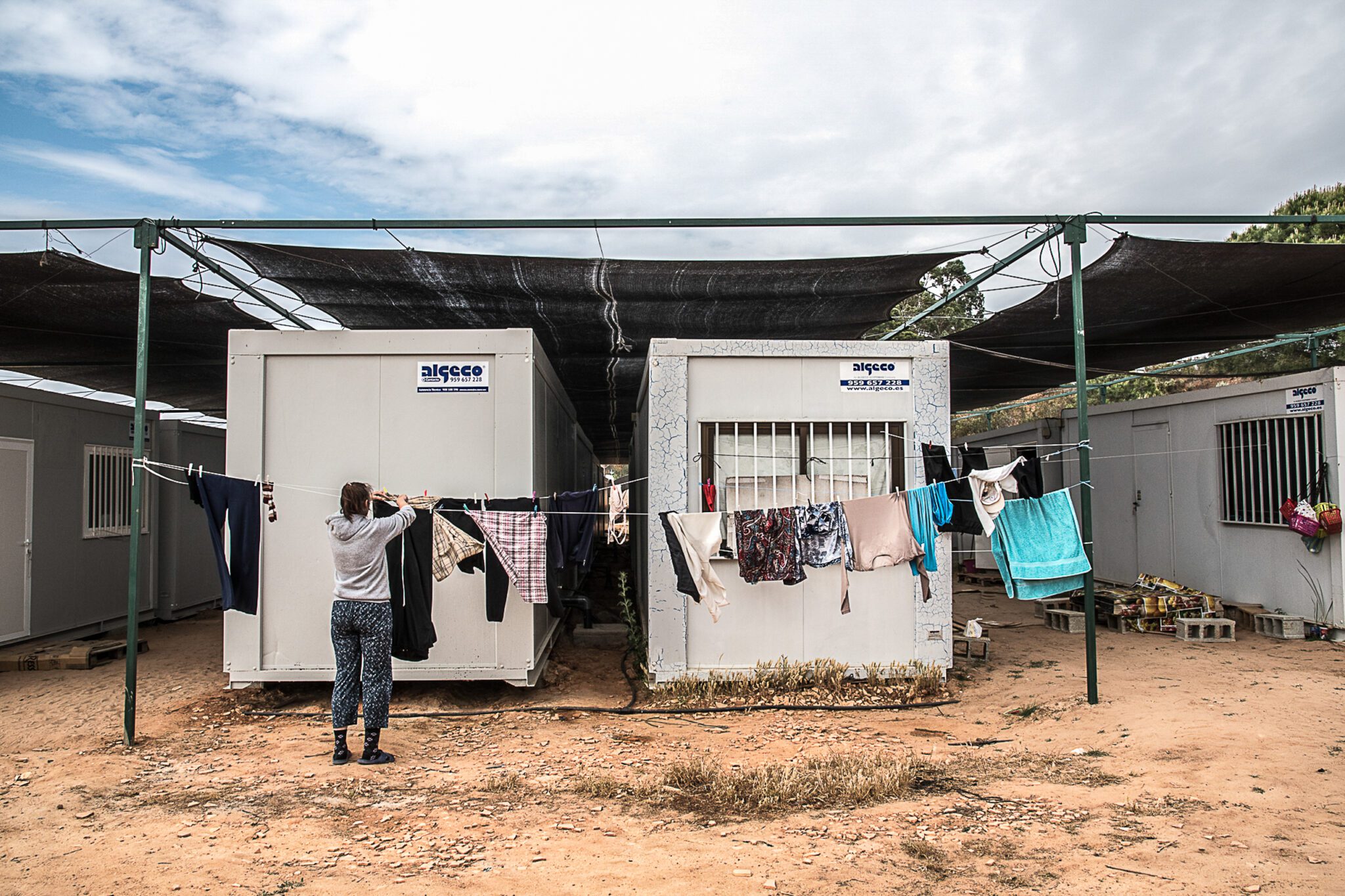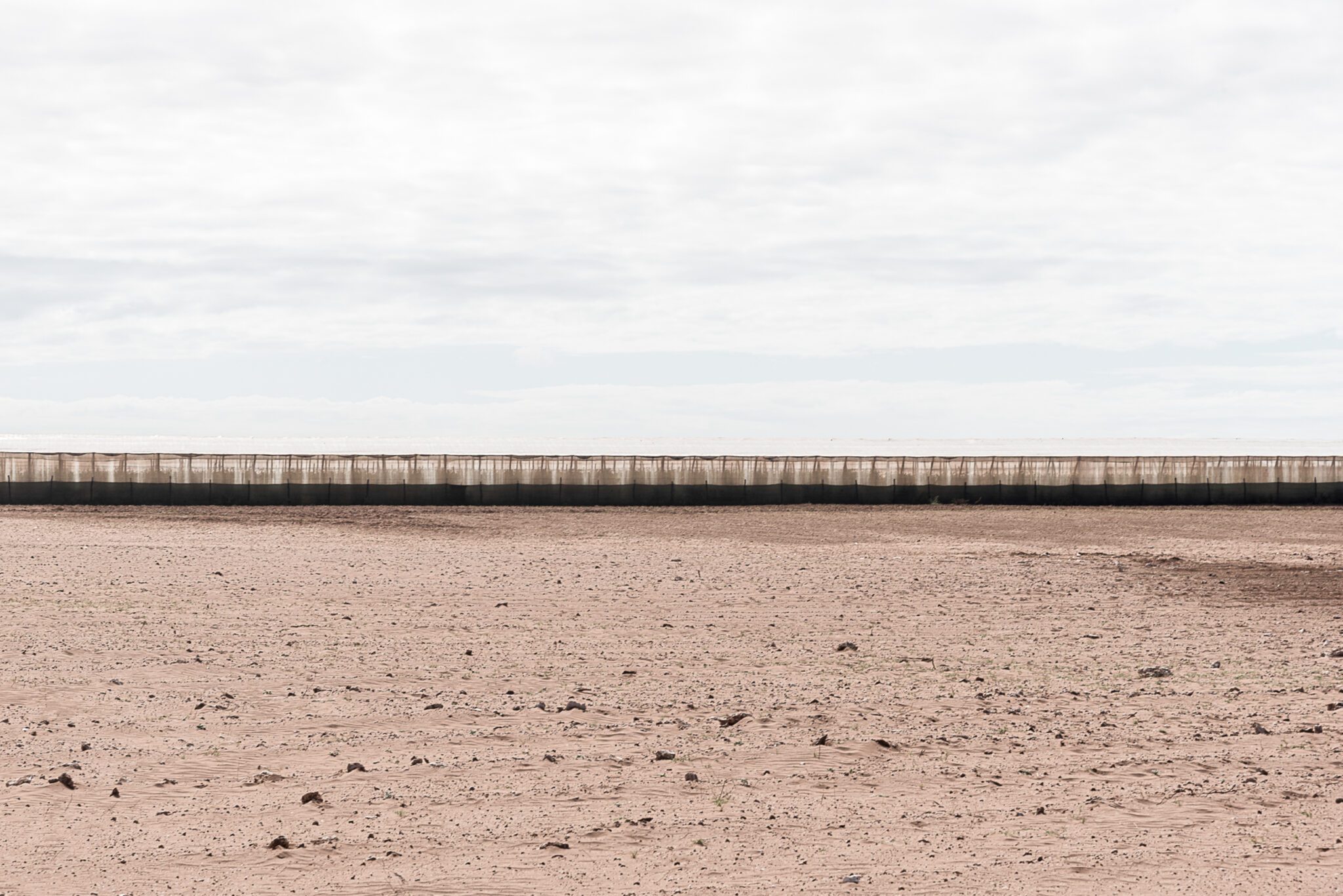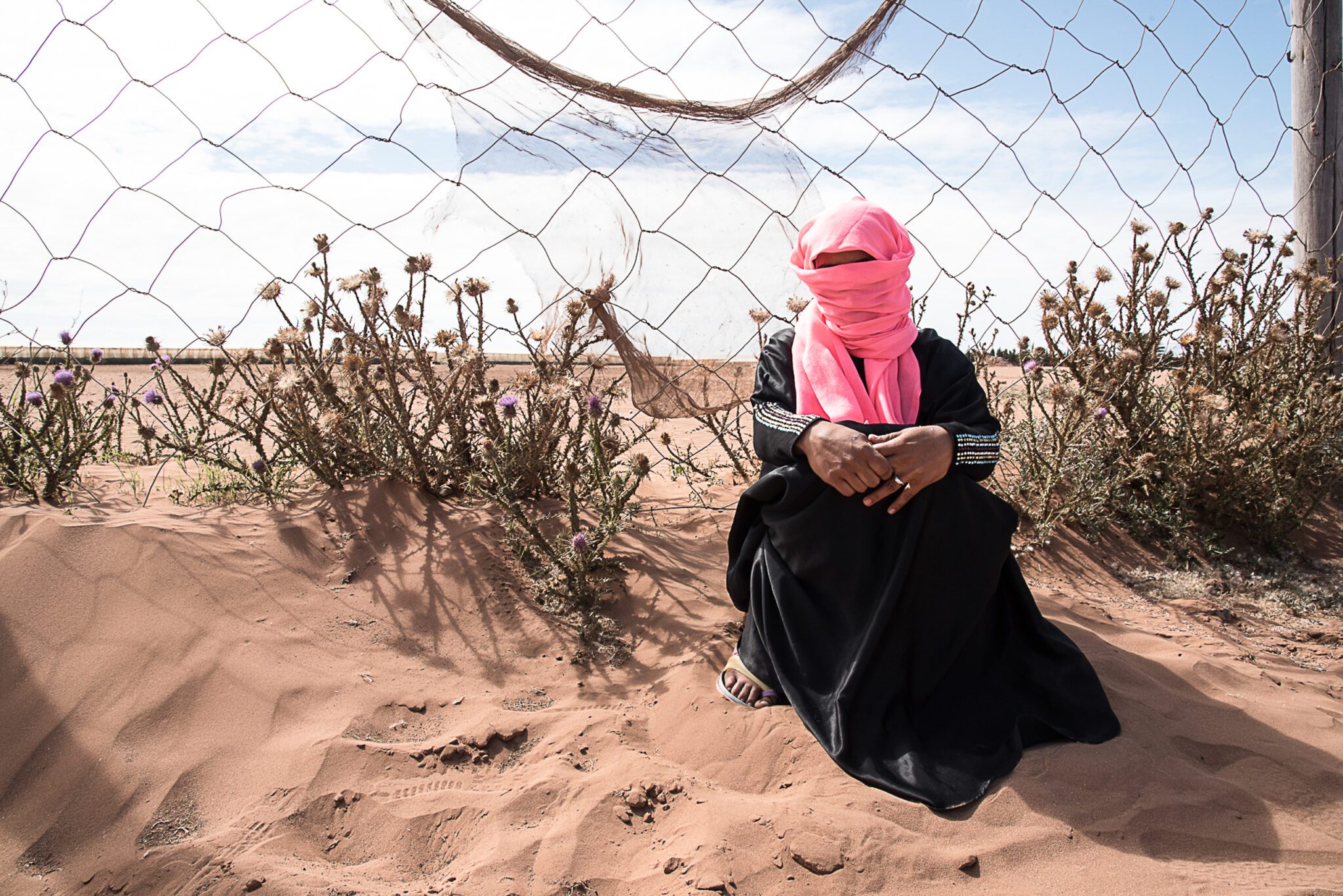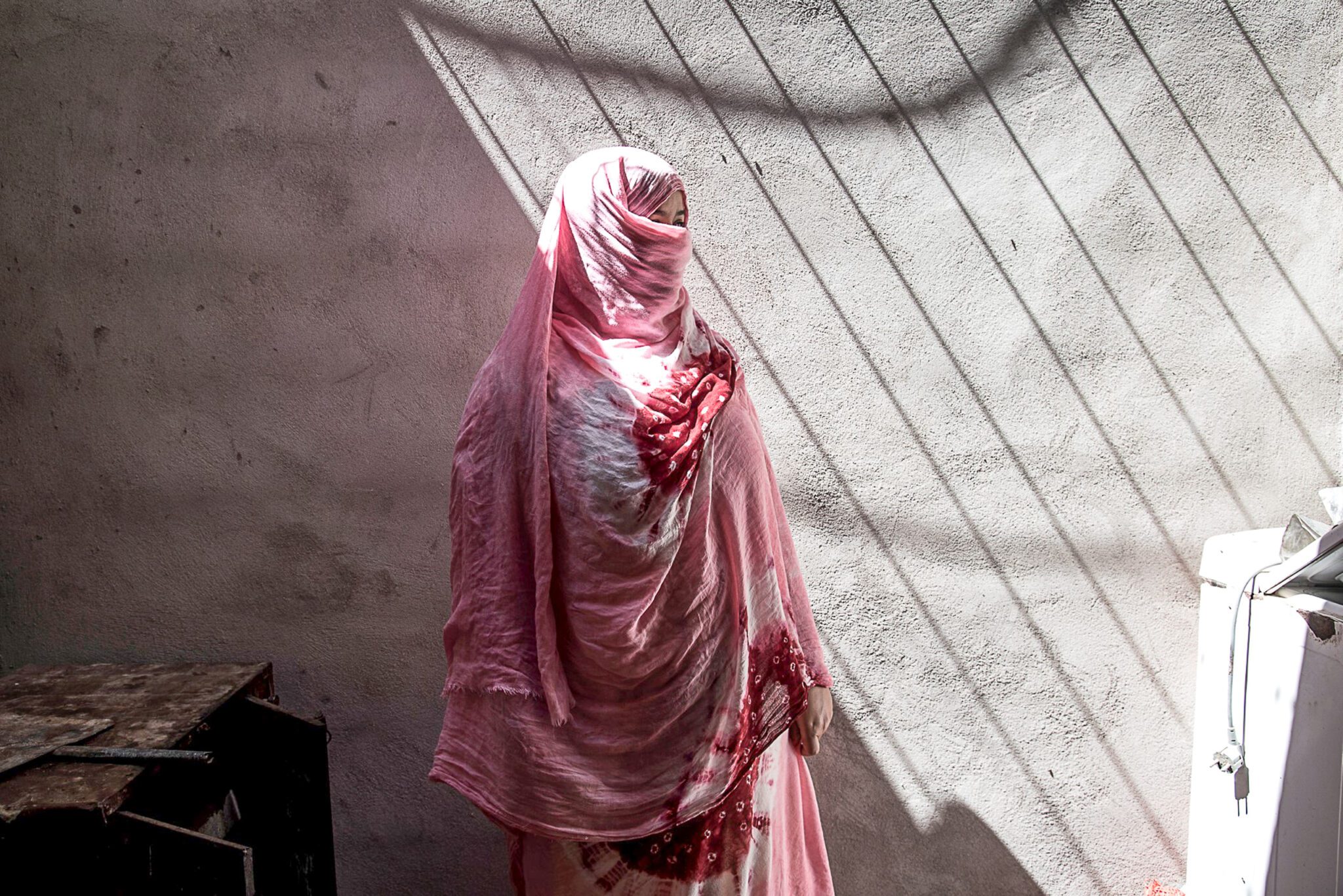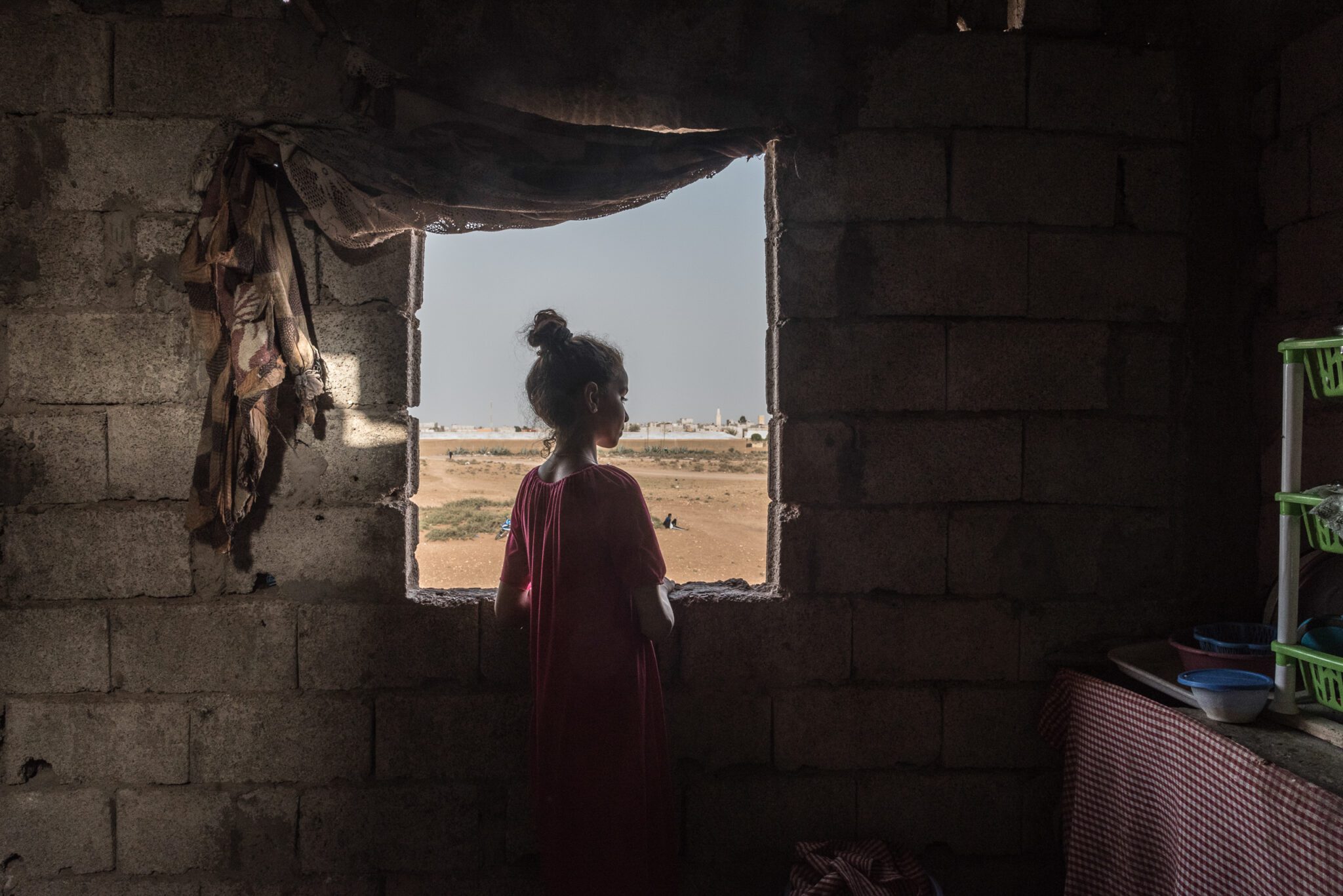The Red Gold project examines and reports on three Mediterranean Sea countries, Italy, Spain, and Morocco, which are among the world’s largest exporters of vegetables and fruits.
Female laborers who pick strawberries, red fruit, and tomatoes that arrived on our tables are not only paid less than men and work long hours, but are sexually harassed, blackmailed, threatened, and raped.
Abuse is underreported. The reporting of these crimes is objectively difficult: it is often impossible to gather evidence and testimony, so justice is unlikely. Women are still assumed, more or less overtly, to be to blame, as they would be the ones to provoke and to take advantage.
Red Gold is an investigative, journalistic, and photographic project that began in 2016 and lasted for three years. In total, more than one hundred and thirty interviews were conducted with female workers, unionists, and associations.
The photos have been published in Al Jazeera, Politiken, Open Society Foundations, Vice, Correctiv, BuzzFeed, Action, Gli Stati Generali, Radiotelevisione Svizzera (RSI), Danwatch, Revue Project, Aggiornamenti Sociali, Il Fotografo, and have received special mentions at the Moscow International Photo Awards, International Photography Awards, Neutral Density Awards, Photogrvphy Festival, Tokyo International Photo Awards.
Photos from this series have been exhibited in several Italian cities, as part of festivals, in libraries, schools, and universities. In 2018, they were screened in Brussels at the European Parliament.
Additionally, Red Gold was part of an investigation I conducted with German journalist Pascale Mueller, published on German websites BuzzFeed and Correctiv.
In 2018, the investigation was nominated for the Austrian Medien Lowin Preis, the German Deutsche Reporterpreis, and won the Otto Brenner Preis and Georg von Holtzbrinck Preis. It won Germany’s most prestigious investigative journalism award, the Nannen Preis, in 2019, as well as the Theodor Wille Heinrich Diedrichsen Journalismuspreis.
The impact of the investigation in Spain. Politicians and prosecutors in Spain called for investigations into the conditions of Huelva’s female laborers after the publication of the articles in Correctiv and BuzzFeed. From Barcelona to Madrid, thousands of protesters have made garrisons and marches in solidarity with the farmworkers in Huelva. Several migrants and Spanish farm workers in Huelva filed complaints in 2018, and 400 Moroccan farm workers demonstrated spontaneously with support from SAT, Sindicato Andaluz de Trabajadores. The protests continued and the autonomous labor union Jornaleras de Huelva en lucha. The UN sent an inspector to report on the situation.
The impact in Switzerland and Germany. Aldi Süd stopped buying strawberries from the accused companies in 2018. An internal investigation has been conducted by one of the most prominent certifiers of global food assurance standards, Global GAP. Several international associations and NGOs, including Switzerland’s Solifonds, have decided to financially support the farmworkers’ struggle through grassroots associationism and other actions.
